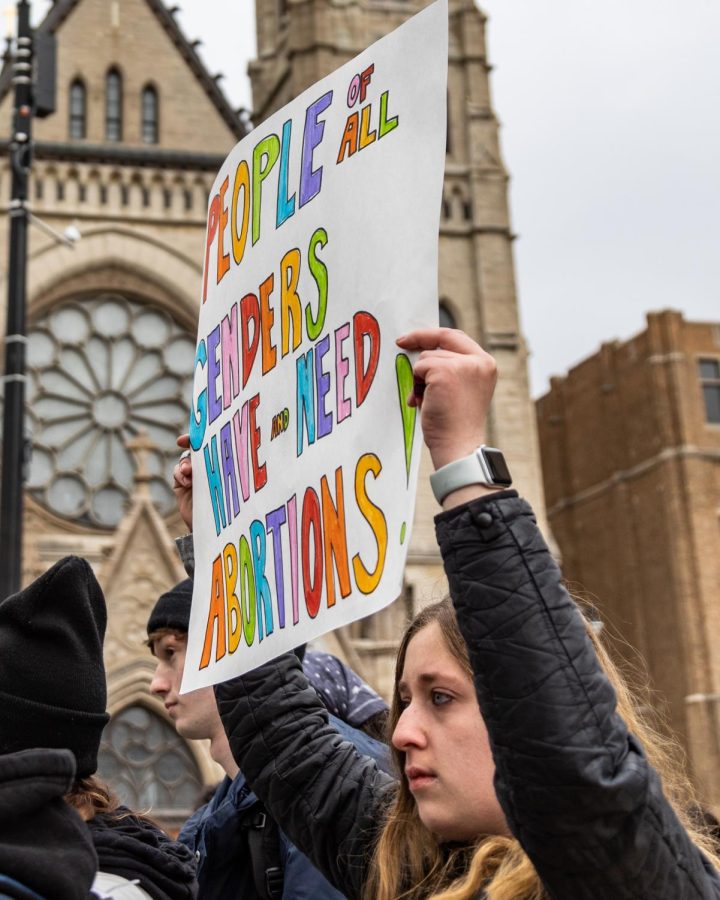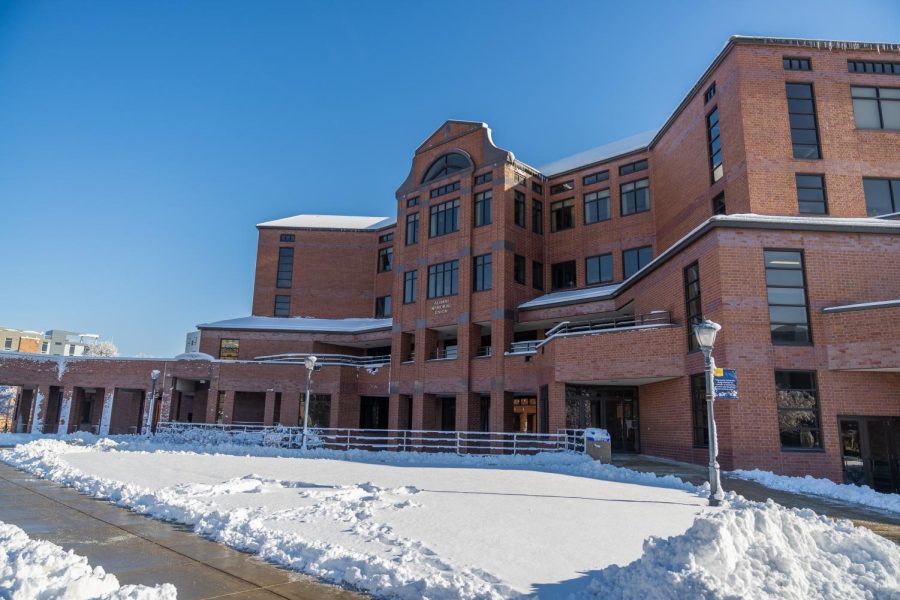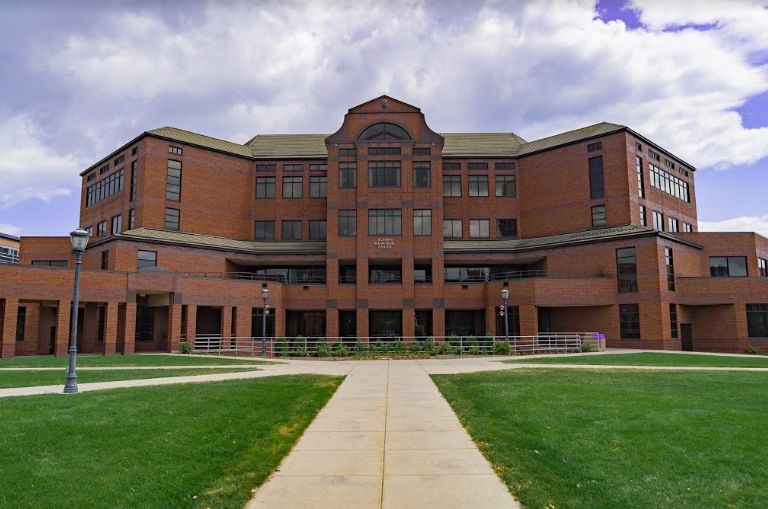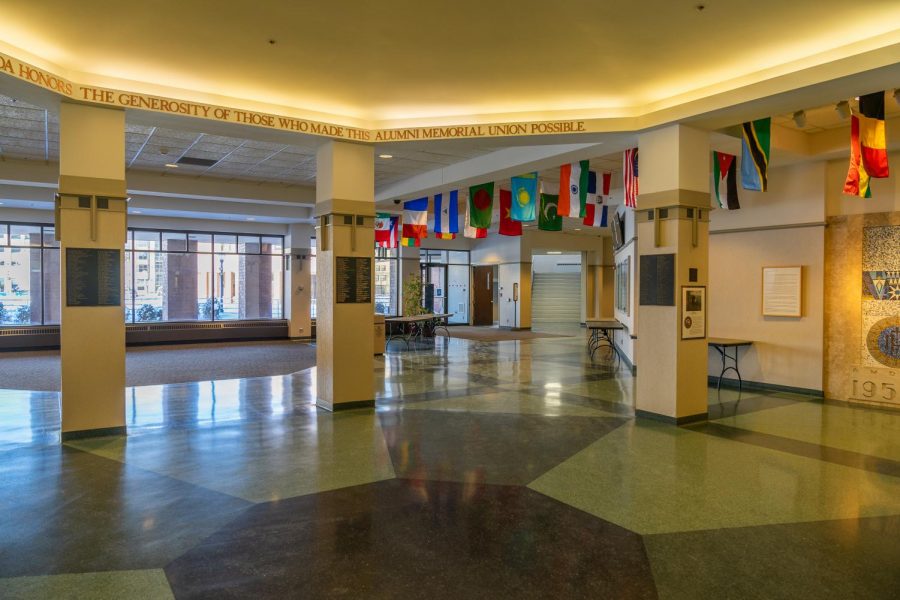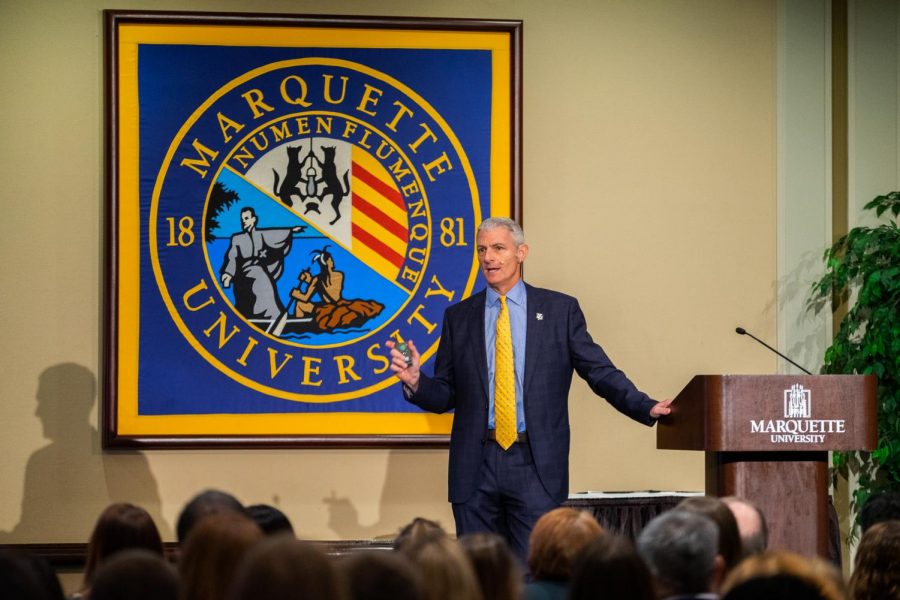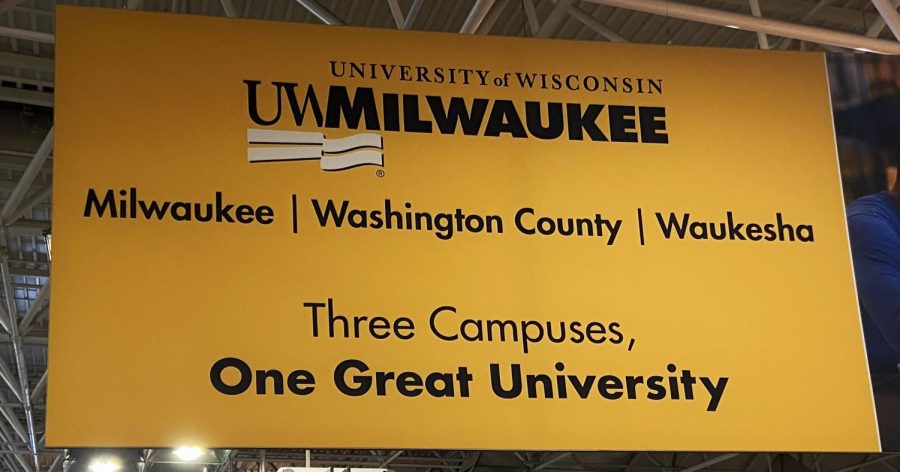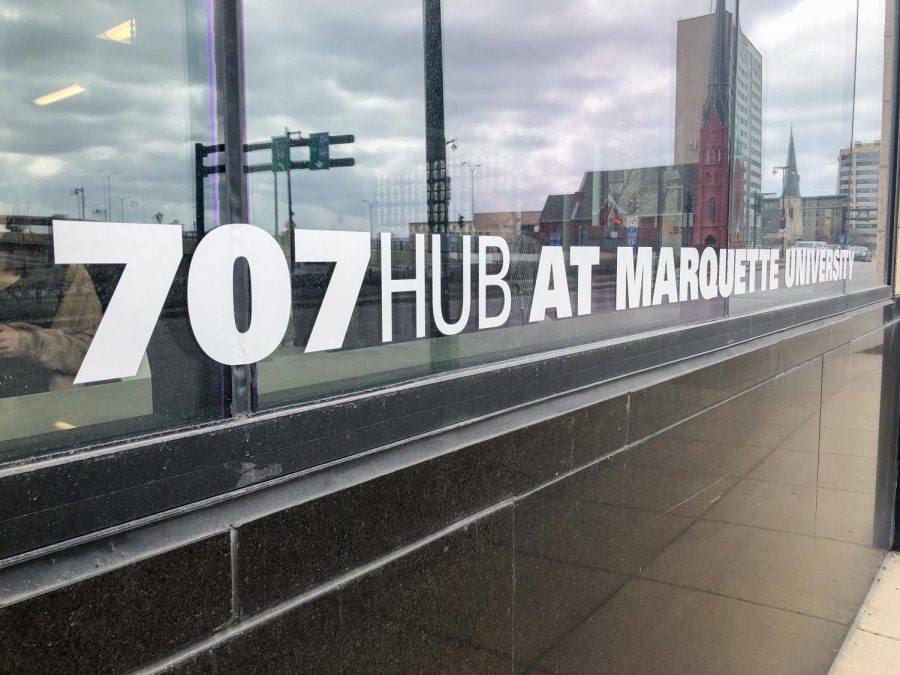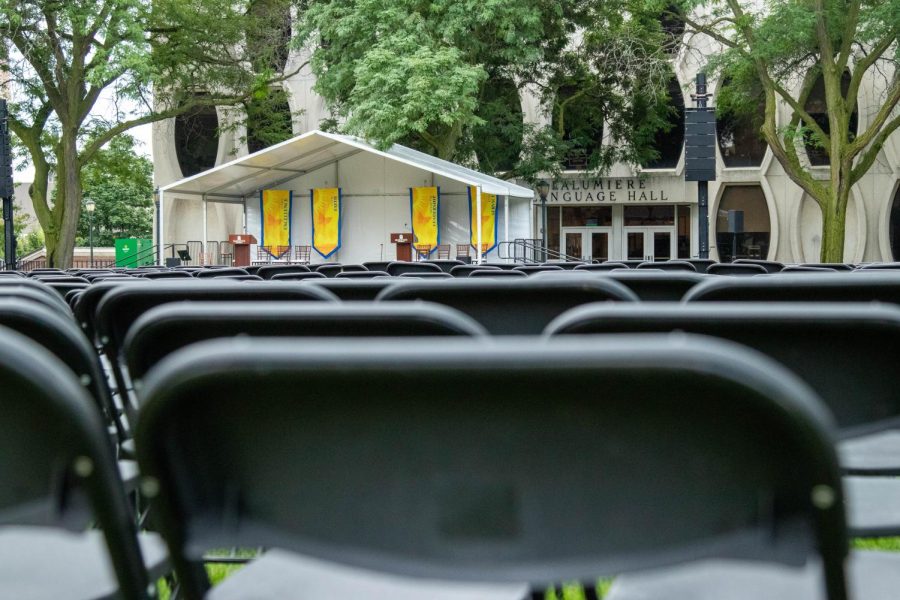May 6th, 2022, was an overcast spring day ridden with a swirl of emotions for Marquette student Grace O’Malley. O’Malley, a sophomore in the College of Communication, was attending the protest on campus following the leaked draft opinion on Roe v. Wade.
“I was a little nervous, protesting is often seen as an act of defiance, but I was mostly excited,” O’Malley said. “It felt so safe to be around people at the protest who actually understand you.”
The protest met in a public space outside the AMU, where peaceful protesting is protected by the law. Since Marquette University is a private Jesuit institution, students are expected to follow the demonstration policy when peacefully protesting.
The policy states that anyone in the Marquette community has a right to exercise a protest, however, they need to follow the guidelines to avoid a disruptive demonstration, defined as “any demonstration that unreasonably interferes with the rights or safety of others.”
Erik Ugland, an associate professor in the College of Communication, said that Marquette’s policy is put in place to prevent a potential disruption on campus.
“A demonstration policy is a set of guidelines to ensure those on campus aren’t disrupting the functions of the university,” Ugland said. “If you’re planning a demonstration, you need to consult with the dean of students ahead of time.”
Max Guerzon, a first–year in the College of Engineering, said the policy needs to be updated.
“If a student has to go through Marquette they might have to censor themselves and their opinions in order to get approval. If they don’t need it, they can speak their mind without censorship in fear of consequences,” Guerzon said. “We could make our policy better by not having to gain approval but rather letting the school know so that they can prepare and can have extra supervisors so the peaceful protest ensures safety.”
Loyola University Chicago, like Marquette, is a private Jesuit institution. They changed their demonstration policy in 2016 so that students do not have to get prior permission to peacefully protest if they are doing so at specific locations on campus. This is one of the differences between Loyola’s policy and Marquette’s.
The policy states that “The DPRC recommends that the university implements a policy that does not restrict when demonstrations take place or when fixed exhibits can be erected, protecting Loyola community members’ rights to demonstrate during university-sponsored events.”
Ugland said that Marquette students do not have to go through the dean for peaceful protests if it takes place outside in public spaces or is in the lobby of the first or second floor of the Alumni Memorial Union.
Guerzon thinks Marquette should follow in Loyola’s footsteps and make the policy easier to follow.
“I resonate more with Loyola’s policy because it gives the students more freedom to express themselves through assembly. If there is an urgent issue that pops up, students should be able to act on it without having to wait for approval,” Guerzon said.
Ugland agrees that Marquette’s demonstration policy has room for improvement.
“It did not have a definitions section, so it’s not clear what constitutes a protest that requires approval from the dean. Anytime there are ambiguous terms you’re inviting conflict and uncertainty. Crucial terms need to be defined for protection of both sides,” Ugland said.
Ugland said that what makes Marquette’s policy different from public schools is the way in which it is enforced.
“On paper, the policies at a private university and a public university say similar things. At the private university, there is no constitutional protection so Marquette can fashion any policy it wants. There is no first amendment limitation, whereas public schools have to be consistent. They could have the same policy but it comes down to how those policies are enforced,” Ugland said.
O’Malley thinks the best way to invoke change is by understanding the importance of protesting.
“These are such real matters. Having protests is a way to tell people on campus they’re safe,” O’Malley said.
Ugland said not only is speaking out a constitutional right, but it is also essential to better society.
“It’s a part of our ability to have a voice, to hold powerful people accountable and it’s fundamental not only to our democratic system of government but to an education institution that should be the ultimate marketplace of ideas,” Ugland said.
This story was written by Jolan Kruse. She can be reached at [email protected]

